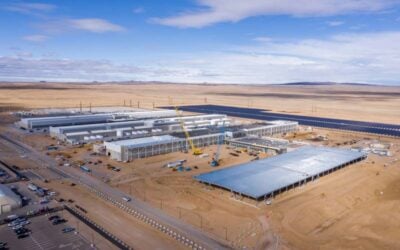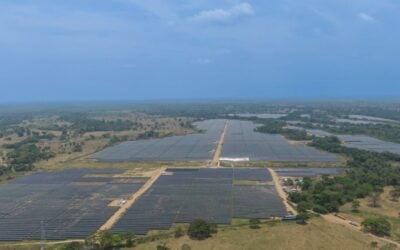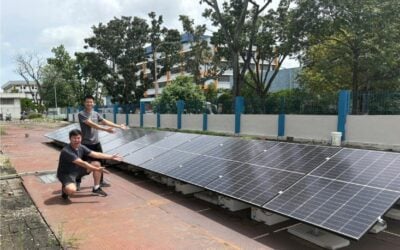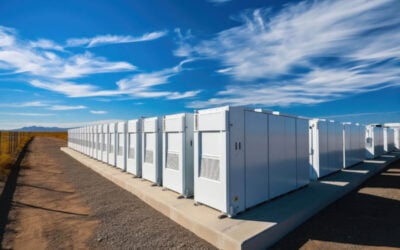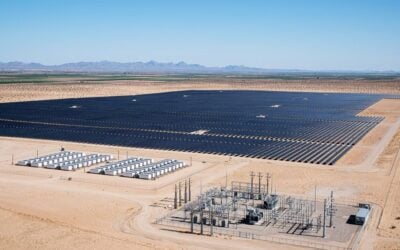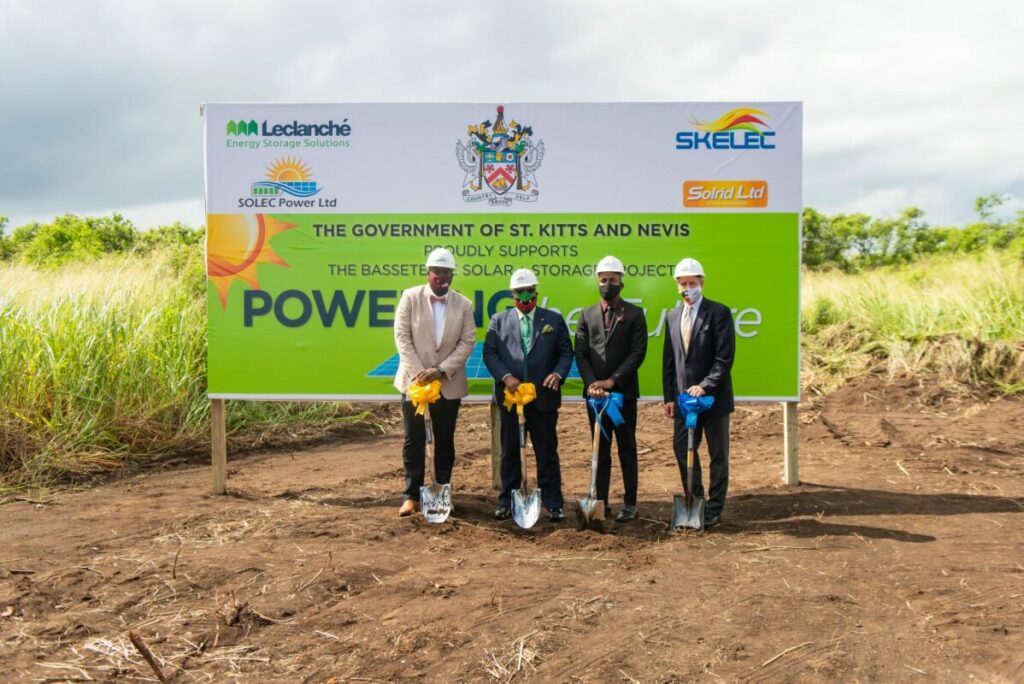
Grid-scale battery storage will be added to island grids in the Caribbean by technology providers Honeywell in the US Virgin Islands and Leclanché in St Kitts & Nevis.
In both instances, the energy storage systems will be co-located and integrated with solar PV. Between them, the deals represent a total 167.6MWh energy storage capacity at seven solar-plus-storage projects.
Enjoy 12 months of exclusive analysis
- Regular insight and analysis of the industry’s biggest developments
- In-depth interviews with the industry’s leading figures
- Annual digital subscription to the PV Tech Power journal
- Discounts on Solar Media’s portfolio of events, in-person and virtual
Another thing the projects on the two island territories have in common is that they will enable 30% or more of the energy consumed on both the US Virgin Islands, with a population of around 80,000 people, and St Kitts & Nevis, with a population of around 47,000, to come from renewable energy sources.
Sustainable technologies helping reduce cost of electricity
Honeywell will supply its battery energy storage system (BESS) technology to six solar PV projects in the US Virgin Islands that will take the archipelagic unincorporated US territory to 30% renewable energy consumption.
US-headquartered automation and engineering group Honeywell’s battery storage units totalling 124MWh will be paired with 140MWdc of solar PV at six solar parks spread out on St Thomas, St Croix and St John, the three main islands that comprise the territory.
It’s a big step forward for the US Virgin Islands – according to the national Energy Information Administration (EIA), as of 2020, less than 10% of electric generation came from renewables, and as recently as last year, solar PV’s share was only about 3%.
Most of the islands’ electricity is generated by propane or fuel oil, which comes with an associated cost that means US Virgin Island residents pay US$0.41/kWh for their power, around three times more than the US average of US$0.15/kWh.
“This renewable project is an example of how sustainable technologies are helping reduce the cost of energy for the people of the US Virgin Islands and around the world,” Honeywell Process Solutions president Pramesh Maheshwari said.
Honeywell has been contracted to supply the equipment for renewable energy solutions provider VI Electron, a subsidiary of Massachusetts-based renewables group CB Loranger. Honeywell did not offer comprehensive details of the BESS and associated technologies to be used at the sites, but did note that the systems will be integrated with Honeywell’s battery management system (BMS). The BMS’ control capabilities will enable forecasting and optimisation of energy usage and costs against expected solar production from weather reports, demand on the grid and so on.
“It propels us closer to our goal of achieving 30% renewable energy consumption in the US Virgin Islands, fostering a cleaner and greener energy ecosystem,” US Virgin Islands Governor Albert Bryan Jr said.
According to the EIA, about 80% of the solar that is installed on the islands is distributed rooftop PV, and only 20% utility-scale. The new projects will also alter that balance significantly, although a release from Honeywell did not mention expected timelines for their completion.
Other recently announced project contracts for Honeywell’s BESS division include what could be Vietnam’s first grid-scale BESS asset, for which the company signed a Memorandum of Understanding in May with Philippines-headquartered developer AC Energy (ACEN), and Vietnam’s AMI Renewables.
Much of the company’s other activities have been focused on battery storage solutions for the commercial and industrial (C&I) market segment, with Honeywell launching its newest BESS product, Honeywell Ionic, integrated with the company’s own energy management system (EMS), Experion Energy Control System, for mid to large C&I applications, in June.
Renegotiated contract for delayed St Kitts & Nevis project
The single-site project contract Leclanché is fulfilling on St Kitts & Nevis may have a similar impact on an island region, but there’s a less fortunate reason for the timing of its announcement.
The news may sound familiar to regular readers of Energy-Storage.news, as the project was among those that fell victim to fluctuating cost dynamics in the post-pandemic era.
Leclanché will provide a 43.6MWh BESS solution to be paired with 35.7MWp of solar PV, to a project by developer SOLEC Power.
In fact, Switzerland-headquartered battery manufacturer and BESS system integrator Leclanché originated the project back in 2019, when it secured land for it before negotiating a 20-year power purchase agreement (PPA) with the St Kitts & Nevis government.
There were then false starts over the project’s commencement, and it was greatly delayed due to COVID, with Leclanché and the government prematurely celebrating groundbreaking in late 2020, needing to find extra financing in 2021 to keep it afloat, before again saying the start of construction was close at hand in June 2022.
However, all involved will be hoping a third time will go more smoothly: the project is finally ready to go, after a renegotiation in terms of the PPA signed between Leclanché’s project development vehicle, SOLEC Power (formed as a joint venture with Canada’s Solrid Ltd), and state-owned St Kitts Electricity Company (SKELEC) was agreed upon.
Following a “complete and thorough review” of the PPA deal directed by St Kitts and Nevis government and assisted by the Caribbean Centre for Renewable Energy and Energy Efficiency (CCREEE), the government requested that the PPA price be reduced, that opportunities for local investment to get involved be written into project terms and putting in place “rigid timelines,” the government said.
Under the renegotiated terms, the project is expected to save the St Kitts economy US$200 million in costs associated with importing diesel to burn for power generation over its 25-year lifetime. Put another way, it will reduce the cost of power generation by 40% versus diesel, providing multiple applications from making the onsite solar PV dispatchable to the grid at times of high demand to ancillary grid services including spinning reserve, and providing some emergency backup to the grid.
Construction is now expected to begin in Q2 2024. Leclanché said it would provide the solar PV technology as well as BESS, which will be integrated with the company’s own battery management system (BMS). The Swiss battery cell and energy storage technology group launched LeBlock, its latest modular BESS solution, in 2021.
Energy-Storage.news’ publisher Solar Media will host the 6th Energy Storage Summit USA, 19-20 March 2024 in Austin, Texas. Featuring a packed programme of panels, presentations and fireside chats from industry leaders focusing on accelerating the market for energy storage across the country. For more information, go to the website.

